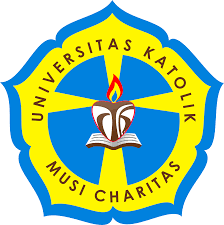PENDAMPINGAN DAN PELATIHAN TEKNIK BENDING TRIPLEK DALAM PENGGUNAAN KLEM “F”
DOI:
https://doi.org/10.32524/jamc.v8i1.1166Abstract
This community service activity aimed to enhance motor skills of people with disabilities. Involving 28 participants from three communities in Semarang and Surabaya, the activity provided training in plywood bending using "F" clamps. Observations showed varying abilities: participants with excessive supervision demonstrated 0.25 normal strength, those without special supervision 0.50, and independent individuals achieved 0.9-1.0. These results indicate that independence in daily activities contributes to better motor skill development. The activity emphasized the importance of balancing protection with opportunities for people with disabilities to develop motor skills through light daily activities.
References
Adolfsson, M., Malmqvist, J., Pless, M., & Granuld, M. (2018). Identifying child functioning from an ICF-CY perspective: Everyday life situations explored in measures of participation. Research in Developmental Disabilities, 83, 57-69.
Anaby, D., Law, M., Coster, W., & Bedell, G. (2019). The mediating role of the environment in explaining participation of children and youth with and without disabilities across home, school, and community. Archives of Physical Medicine and Rehabilitation, 95(5), 908-917.
Ariotti, L. (2018). Social inclusion through leisure: The case of young people with disability. Disability & Society, 33(7), 1089-1105.
Bloemen, M., Van Wely, L., Mollema, J., Dallmeijer, A., & de Groot, J. (2015). Evidence for increasing physical activity in children with physical disabilities: A systematic review. Developmental Medicine & Child Neurology, 57(2), 137-144.
Bonnechère, B., Jansen, B., Omelina, L., & Van Sint Jan, S. (2020). The use of commercial video games in rehabilitation: A systematic review. International Journal of Rehabilitation Research, 39(4), 277-290.
Fong, S. S., Guo, X., Liu, K. P., Ki, W. Y., Louie, L. H., Chung, R. C., & Macfarlane, D. J. (2020). Task-specific balance training improves the sensory organisation of balance control in children with developmental coordination disorder: A randomised controlled trial. Scientific Reports, 10(1), 1-10.
Houwen, S., van der Putten, A., & Vlaskamp, C. (2016). A systematic review of the effects of motor interventions to improve motor, cognitive, and/or social functioning in people with severe or profound intellectual disabilities. Research in Developmental Disabilities, 53-54, 147-159.
Imms, C., Granlund, M., Wilson, P. H., Steenbergen, B., Rosenbaum, P. L., & Gordon, A. M. (2017). Participation, both a means and an end: A conceptual analysis of processes and outcomes in childhood disability. Developmental Medicine & Child Neurology, 59(1), 16-25.
King, G., Imms, C., Stewart, D., Freeman, M., & Nguyen, T. (2016). A transactional framework for pediatric rehabilitation: Shifting the focus to situated contexts, transactional processes, and adaptive developmental outcomes. Disability and Rehabilitation, 40(15), 1829-1841.
Kiram, Y. (2016). Belajar Keterampilan Motorik. Padang: http://repository.unp.ac.id/16266/1/BUKU%20JANUAR%20KIRAM.pdf.
Koldoff, E. A., & Holtzclaw, B. J. (2015). Physical & Occupational Therapy in Pediatrics, 35(4), 355-368.
Lindsay, S., Kingsnorth, S., McDougall, C., & Keating, H. (2016). A systematic review of self-management interventions for children and youth with physical disabilities. Disability and Rehabilitation, 38(14), 1369-1381.Luwes, U. H. (2020). Meningkatkan Kemampuan Motorik Kasar Anak Berkebutuhan Khusus Melalui Kegiatan Melempar Bola Pada Olahraga Boccia Dengan Pendekatan Hots Di SMALB – D1 YPAC Surakarta. BEST JOURNAL Vol.3 No.2, 78.
Nevala, N., Pehkonen, I., Teittinen, A., Vesala, H. T., Pörtfors, P., & Anttila, H. (2019). The effectiveness of rehabilitation interventions on the employment and functioning of people with intellectual disabilities: A systematic review. Journal of Occupational Rehabilitation, 29(4), 773-802.
Piškur, B., Beurskens, A. J., Ketelaar, M., Jongmans, M. J., Casparie, B. M., & Smeets, R. J. (2017). Daily actions, challenges, and needs among Dutch parents while supporting the participation of their child with a physical disability at home, at school, and in the community: A qualitative diary study. BMC Pediatrics, 17(1), 12.
Sugiyono. (2016). Metode Penelitian Kuantitatif, Kualitatif dan R&D. Bandung: Alfabeta.
Sukamti, E. R. (2018). Perkembangan Motorik. Yogyakarta: UNY Press.
Susanto, S. I. (2013). Analisis Perkembangan Motorik Anak Berkebutuhan Khusus Setelah Latihan Gymnastics. Https://Ejournal.Unesa.Ac.Id/Index.Php/Jurnal-Prestasi-Olahraga/Article/View/39593/35245 , 107.
van Engelen, L., Ebbers, M., Boonzaaijer, M., Bolster, E. A., van der Put, E. A., & Bloemen, M. A. (2021). Barriers, facilitators, and solutions for active inclusive play for children with a physical disability in the Netherlands: A qualitative study. BMC Pediatrics, 21(1), 369.
Wehman, P., Taylor, J., Brooke, V., Avellone, L., Whittenburg, H., Ham, W., Brooke, A. M., & Carr, S. (2018). Toward competitive employment for persons with intellectual and developmental disabilities: What progress have we made and where do we need to go. Research and Practice for Persons with Severe Disabilities, 43(3), 131-144.
Winarsih, D. S. (2013). Panduan Penanganan Anak Berkebutuhan Khusus Bagi Pendamping (Orang Tua, Keluarga, Dan Masyarakat). Jakarta: https://www.kemenpppa.go.id/lib/uploads/list/b3401-panduan-penanganan-abk-bagi-pendamping-_orang-tua-keluarga-dan-masyarakat.
Downloads
Published
How to Cite
Issue
Section
License
Copyright (c) 2024 Jurnal Abdimas Musi Charitas

This work is licensed under a Creative Commons Attribution-ShareAlike 4.0 International License.
















_1.png)




